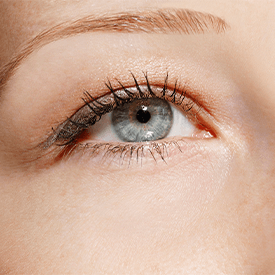Eye Exams in Lake Worth, FL
What Are Eye Exams?
General vision tests are an important part of helping you have 20/20 vision. Elementary students commonly receive eye exams at school, and employees often undergo eye exams for insurance purposes. While an acuity exam helps with your glasses or contact prescriptions, doing well on a vision assessment doesn’t mean you do not have an eye disease.
At Palm Beach Eye Center, eye exams in our Lake Worth practice utilize important diagnostic testing techniques, which allow our eye doctors to evaluate your total eye health. A thorough eye exam is critical because several conditions that cause blindness, like macular degeneration, do not exhibit any warning signs until it’s too late. To prevent any issues and protect your eye health, please schedule your appointment with our expert ophthalmologists at our Lake Worth, FL practice.
What Are the Benefits of Eye Exams?
At Palm Beach Eye Center, our team of professionals is committed to helping individuals achieve optimal eye health. Comprehensive eye exams are crucial to maintaining Lake Worth, FL patients’ ocular health. There are several benefits to receiving regular eye exams, including:
- A simple and comfortable process
- Aids in ensuring patients achieve clearer vision
- Puts patients on the path to effective treatments in the future
- Allows for early detection and diagnosis of eye diseases, eye conditions, and changes in eyesight
- Assists patients in maintaining optimal vision and eye health
Why should I schedule an eye exam in Lake Worth, FL?
Undergoing comprehensive eye exams on a routine basis is crucial for all adults and children. Even if you have not experienced noticeable symptoms, many eye conditions can cause irreversible damage before you have any issues. We recommend that patients ages 18 – 40 schedule eye exams in our Lake Worth practice so we can detect any conditions. Additionally, at six months of age, children should undergo their first eye exam. With all age ranges, an eye exam can detect any issues, prescription changes, and prevent eye diseases. If you do wear glasses or contacts, please bring them with you to your appointment. Lasting about 30 – 90 minutes, we complete:
- Vision acuity test
- Baseline evaluation
- Alignment test
- Perimetry test
- Color vision deficiencies test
- Refraction test
- Slit lamp test
- Eye dilation test
These tests allow us to assess your overall eye health and review the individual structures, such as eyelids, conjunctiva, cornea, iris, and lenses. We can also look for any signs of glaucoma, macular edema, cataracts, diabetic retinopathy, or retinal detachment. Some patients require a tonometry test to detect increased eye pressure, which occurs because of certain eye conditions and may cause a decrease or loss of vision. After finishing your eye exam, someone will talk to you about planning your next visit or if we need to create a treatment plan to address a specific issue. Your age, results, risk factors, and other details will help us determine when to schedule your next eye exam.
What Can I Expect During An Eye Exam?
During your eye exam, your optometrist will perform a few eye tests, like eye dilation, to ensure that your eyes are healthy. When checking your vision, we will evaluate how your eyes focus and move. Some of the other standard tests that may be performed are:
- Visual acuity: during this test, your optometrist will ask you to read letters on an eye chart to determine if you need glasses or what your glasses prescription should be.
- Automatic refraction: an autorefractor shines a light into the eye to assess the eye’s response.
- Visual field: this test is performed to evaluate your peripheral vision.
It is important to schedule an annual eye exam. Eye exams are easy and painless and are a vital part of maintaining the health of your eyes.
What Can I Expect After an Eye Exam?
After an eye exam, you can expect to have a clearer understanding of your eye health and vision needs. If your pupils were dilated, your vision might be temporarily blurred, and you may be sensitive to light for a few hours, so wearing sunglasses is recommended. Your eye care provider will discuss any findings from the exam, such as prescription updates for glasses or contacts, or the presence of any eye conditions. You’ll also receive recommendations for follow-up visits or treatments if needed. If everything looks normal, you’ll leave with peace of mind and a plan for your next routine check-up.
Does Insurance Cover Eye Exams?
Many vision insurance plans help cover routine eye exams, prescriptions, and even eyewear, while health insurance may only provide coverage if the exam is related to a medical concern such as glaucoma, diabetic eye disease, or an injury. Because benefits can vary from one plan to another, it’s always best to review your policy or contact us at Palm Beach Eye Center in Lake Worth, FL and Delray Beach, FL for guidance on what your insurance includes.
Eye Exam FAQ
Which tests are performed during an eye exam?
A routine eye exam in Lake Worth may be made up of a number of exams meant to accurately identify any potential imperfections in your eyes. However, most eye exams will usually include:
- Pre-Exam Tests
- Pupillary Reactions
- Slit Lamp Test
- Visual Acuity and Refraction
- Pupil Dilation
What is the purpose of an eye exam?
There are a number of reasons someone might need an eye exam, including vision correction and the overall health of their eyes. For these reasons, we recommend scheduling an eye exam at least once a year to ensure we can stay on top of your vision and ocular health.
What is the difference between a routine eye exam and a medical eye exam?
Though somewhat similar, medical eye exams and routine eye exams actually have two different purposes. A routine eye exam is used to identify any non-medical issues, such as astigmatism or nearsightedness. On the other hand, a medical eye exam serves to diagnose and treat any potential eye disease or infection.
Ensure Your Eye Health
Often, patients don’t think about their eye health until they experience a vision problem. But the health of our eyes involves more than visual acuity. Even people who receive perfect results should continue to schedule eye exams in our Lake Worth office every 2 – 4 years. That way, if any concerns develop, we can detect and treat them early on. You might be asked to set up a visit for future testing or treatment if one of our eye doctors detects any signs of a potential problem. We invite you to schedule comprehensive eye exams for you and your whole family with our ophthalmologists in Lake Worth, FL. Proudly serving our South Florida communities, Palm Beach Eye Center uses cutting-edge technologies and techniques to examine your eyes, diagnose any issues, and treat them early on.
*Individual results are not guaranteed and may vary from person to person. Images may contain models.




